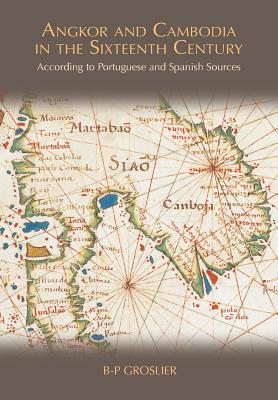Groslier's seminal study of the accounts of early Spanish and Portuguese
missionaries and adventurers in Cambodia was published in French in
1958, and is translated here into English for the first time.
The reports of the Europeans record the earliest surviving first-hand
accounts of Angkor, following the 'rediscovery' of the site by the Khmers,
over a hundred years after its abandonment in 1432 CE, and four hundred
years prior to the colonization of Cambodia by the French.
While the accounts are fascinating in their own right, Groslier employs
some of their key observations on the structure of Angkor in the 16th century
to embark on further exploration of his own into the nature of Khmer
civilization. Complementing his studies of the early accounts with the first
aerial surveys of the site, Groslier reconstructs a broad picture of Angkorian
civilization, its economy, the genius of its engineers and planners, its unique
religious foundations and the pivotal humanitarian role of its god-kings.
Angkor and Cambodia in the Sixteenth Century represents one of the
major breakthroughs in our understanding of this rich and complex
medieval Asian culture, and is a pillar on which all subsequent studies have
been built. Essential for all readers, both scholarly and lay, who seek to
further understand the society responsible for the construction of the great
monuments of ancient Angkor.
